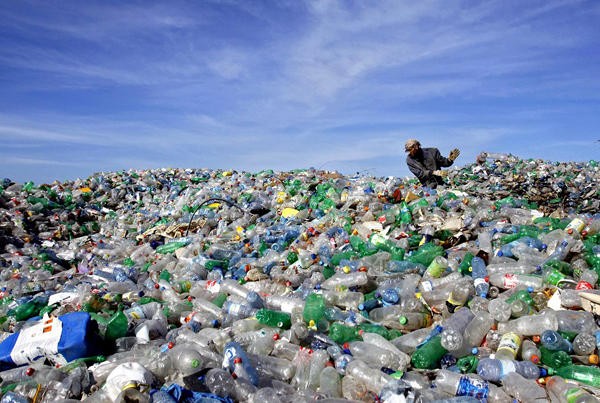(VOVWORLD) - At the Our Ocean international conference in Malta on Friday, several countries announced their plans to ban the use of micro plastic and disposable plastic products. This is one of efforts by the international community to reduce plastic waste.
 Placstic recycling (Photo: ecoreps.com.au) Placstic recycling (Photo: ecoreps.com.au) |
France told the conference that from January 2020, it will ban disposable plates, cups, and utensils. France will cease the production of micro plastic products by next January and of cotton buds with plastic handle by January 2020. The UK is committed to ban the use of micro plastics in personal care products, which have been discharged to the ocean and cause severe pollution. London hopes the ban will be imposed nationwide next June. New Zealand plans to ban certain micro plastic products by next May. The US says it will allocate 9.1 million USD for waste recycling projects in Indonesia, the Philippines, Sri Lanka, and Vietnam in 4 years.
The Independent newspaper says banning plastic microbeads in cosmetics is seen as an easy way of reducing the amount of small pieces of plastic getting into the sea, partly because they are used as exfoliants and there are natural replacements. However, most plastic gradually breaks down over time into tiny pieces, some of which are small enough to pass through the gut of animals and into their blood vessels and body tissues. Microplastic has spread all over the planet, with one estimate suggesting there are 300 billion pieces in the Artic Ocean alone.
A major study found humans have produced a 8.3 billion metric of tons of plastic since 1950, creating 6.3 billion tons of waste. Nearly 80 per cent of that waste has been dumped in landfill sites or simply thrown away into the environment.
This year’s Our Ocean international conference, attended by representatives from over 100 countries and international organizations, discussed marine pollution, protected sea areas, marine security, blue economy and sustainable fishing, and efforts to deal with climate change in line with the Paris Agreement on climate change and the UN’s 2030 Sustainable Development Goals. The conference pledged more than 7 billion USD to fight marine pollution, expand protected marine areas, and strengthen marine security. At the event, a new protected marine area was announced, covering 2.5 million square km, equivalent to half of the European Union territory.